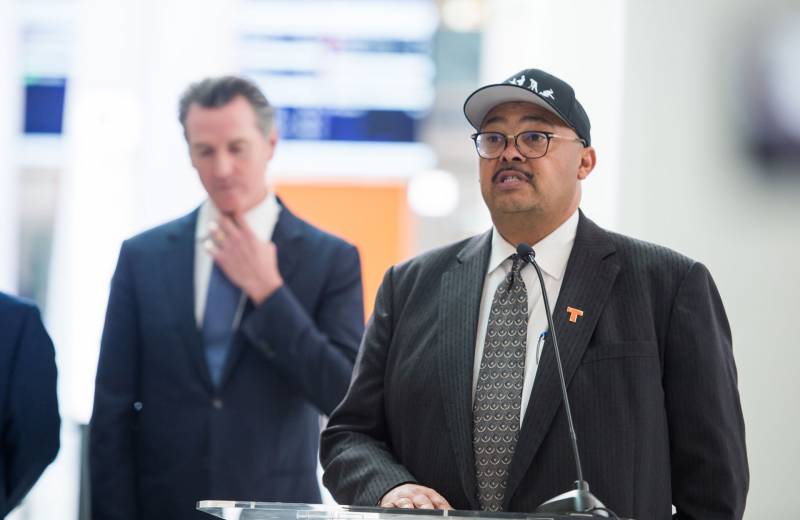Mohammed Nuru, the disgraced former San Francisco Public Works director, was so proud of his charge to powerwash city sidewalks he called himself “Mr. Clean.”
When he was arrested by the FBI in late January on public corruption charges, however, “Mr. Clean” was suddenly seen as an almost stereotypically dirty bureaucrat. His fall from grace cast a pall over his department.
They felt dirty, too.
Now, those Public Works employees, from street cleaners and sewer workers to arborists and pavement layers, want to scrub their reputations free from “Mr. Clean’s” influence, and they’re looking to San Francisco Supervisors Matt Haney and Gordon Mar to help them.
Laborers’ International Union of North America (LiUNA) Local 261, representing a majority of San Francisco Public Works maintenance and trades workers, voted unanimously Wednesday to support Haney and Mar’s forthcoming November 2020 ballot measures to reform Public Works and increase city oversight.
“The corruption had a huge impact on membership,” said Theresa Foglio-Ramirez, a city representative and business agent of LiUNA Local 261, which represents Public Works’ front-line workers, who do hands-on work outdoors cleaning streets, urban forestry, pothole repair and performing sewer work.
“The morale is now terrible,” she said.

